Related Research Articles
The conservation movement, also known as nature conservation, is a political, environmental, and social movement that seeks to manage and protect natural resources, including animal, fungus, and plant species as well as their habitat for the future. Conservationists are concerned with leaving the environment in a better state than the condition they found it in. Evidence-based conservation seeks to use high quality scientific evidence to make conservation efforts more effective.

The National Audubon Society is an American non-profit environmental organization dedicated to conservation of birds and their habitats. Located in the United States and incorporated in 1905, Audubon is one of the oldest of such organizations in the world. There are completely independent Audubon Societies in the United States, which were founded several years earlier such as the Massachusetts Audubon Society and Connecticut Audubon Society.

The Nature Conservancy (TNC) is a global environmental organization headquartered in Arlington, Virginia. As of 2021, it works via affiliates or branches in 79 countries and territories, as well as across every state in the US.

The Federal Duck Stamp, formally known as the Migratory Bird Hunting and Conservation Stamp, is an adhesive stamp issued by the United States federal government that must be purchased prior to hunting for migratory waterfowl such as ducks and geese. It is also used to gain entrance to National Wildlife Refuges that normally charge for admission. It is widely seen as a collectable and a means to raise funds for wetland conservation, with 98% of the proceeds of each sale going to the Migratory Bird Conservation Fund.

The National Wildlife Federation (NWF) is the United States' largest private, nonprofit conservation education and advocacy organization, with over six million members and supporters, and 51 state and territorial affiliated organizations (including Puerto Rico and the Virgin Islands).
The Canadian Wildlife Service or CWS, is a Branch of the Department of Environment and Climate Change Canada, a department of the Government of Canada. November 1, 2012 marked the 65th anniversary of the founding of Service.

The Cache River is a 92-mile-long (148 km) waterway in southernmost Illinois, in a region sometimes called Little Egypt. The basin spans 737 square miles (1,910 km2) and six counties: Alexander, Johnson, Massac, Pope, Pulaski, and Union. Located at the convergence of four major physiographic regions, the river is part of the largest complex of wetlands in Illinois. The Cache River Wetlands is America's northernmost cypress/tupelo swamp and harbors 91 percent of the state's high quality swamp and wetland communities. It provides habitat for more than 100 threatened and endangered species in Illinois. In 1996, the Cache was designated a Wetland of International Importance by the Ramsar Convention.
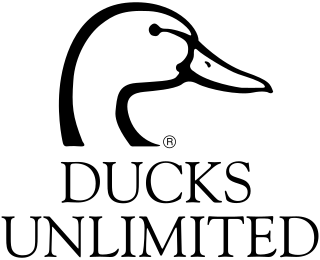
Ducks Unlimited (DU) is an American 501(c)(3) nonprofit organization dedicated to the conservation of wetlands and associated upland habitats for waterfowl, other wildlife, and people. It has had a membership of around 700,000 since January 2013.
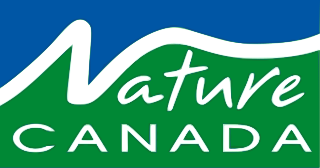
Nature Canada is a member-based environmental organization headquartered in Ottawa, Ontario. Its supporters include more than 100,000 individuals and over 800 affiliated organizations, including local and provincial naturalist clubs.

The National Wildlife Refuge System in the United States has a long and distinguished history.
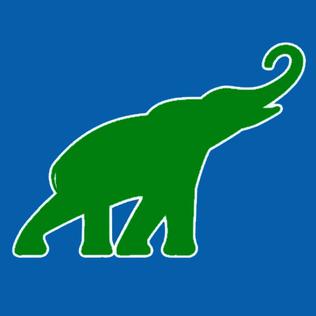
ConservAmerica, formerly known as Republicans for Environmental Protection (REP), is a national nonprofit organization formed in 1995. REP's stated purpose is to strengthen the Republican Party's stance on environmental issues and support efforts to conserve natural resources and protect human and environmental health. Incorporated in Illinois, its headquarters are in Sturgis, Michigan.

The Rocky Mountain Elk Foundation (RMEF) is a conservation and pro-hunting organization, founded in the United States in 1984 by four hunters from Troy, Montana. Its mission is to ensure the future of elk, other wildlife, their habitat and American hunting heritage. In support of this mission the RMEF is committed to:
- Conserving, restoring, and enhancing natural habitats;
- Promoting the sound management of wild, free-ranging elk, which may be hunted or otherwise enjoyed;
- Fostering cooperation among federal, state, tribal, and private organizations and individuals in wildlife management and habitat conservation; and
- Educating members and the public about habitat conservation, the value of hunting, hunting ethics, and wildlife management.
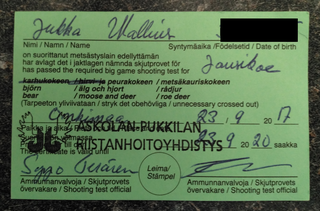
A hunting license or hunting permit is a regulatory or legal mechanism to control hunting, both commercial and recreational. A license specifically made for recreational hunting is sometimes called a game license.

A water bird, alternatively waterbird or aquatic bird, is a bird that lives on or around water. In some definitions, the term water bird is especially applied to birds in freshwater ecosystems, although others make no distinction from seabirds that inhabit marine environments. Some water birds are more terrestrial while others are more aquatic, and their adaptations will vary depending on their environment. These adaptations include webbed feet, beaks, and legs adapted to feed in the water, and the ability to dive from the surface or the air to catch prey in water.
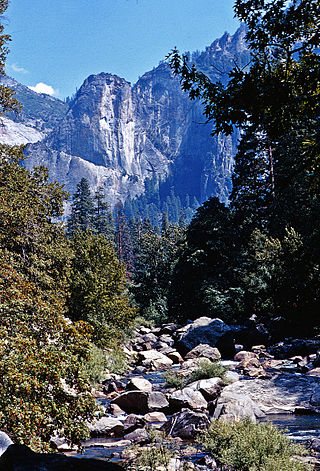
Conservation in the United States can be traced back to the 19th century with the formation of the first National Park. Conservation generally refers to the act of consciously and efficiently using land and/or its natural resources. This can be in the form of setting aside tracts of land for protection from hunting or urban development, or it can take the form of using less resources such as metal, water, or coal. Usually, this process of conservation occurs through or after legislation on local or national levels is passed.
The North American Wetlands Conservation Act authorizes a wetlands habitat program, administered by the United States Fish and Wildlife Service, which provides grants to protect and manage wetland habitats for migratory birds and other wetland wildlife in the United States, Mexico, and Canada. A nine-member council meets periodically to decide which projects to fund.
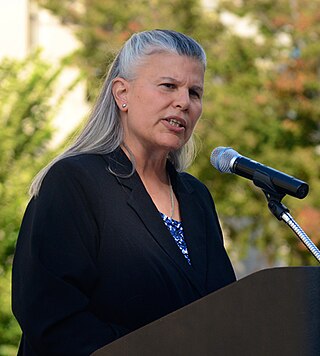
Jamie Rappaport Clark is an American conservationist and former government official working as the president and CEO of Defenders of Wildlife. She joined the organization as executive vice president in 2004.

Roosevelt Republican is a term used in discussions about politics of the United States to describe individuals with beliefs reminiscent of American President Theodore Roosevelt, a politician who spent much of his career as a Republican. Roosevelt possessed diverse political positions and social views, but this label has been generally deployed by figures who wish to publicly align themselves with Roosevelt's record of nature conservation. In particular, defending historic wildlife and undertaking related efforts to preserve environments seen as a part of classic Americana receives emphasis. This mindset broadly contrasts with the ideologies of ethnic nationalism and religious nationalism through identity politics coupled with wholesale economic development without protections for nature advocated for by the Republican mainstream of the 2010s and 2020s, though more centrist and center-left thinking significantly influenced the party in prior decades.
References
- 1 2 Abhat, Divya (Fall 2013). "United They Stand". The Wildlife Professional.
- ↑ "Share Departments of the Interior and Agriculture Announce Members of Federal Council to Support Hunting, Conservation Efforts". doi.gov. U.S. Department of the Interior. September 23, 2022. Retrieved 11 July 2023.
- ↑ "The Pocantico Center". The Rockefeller Brothers Fund. Retrieved November 1, 2013.
- ↑ "Conservation Roundtable". Politico. April 3, 2013.